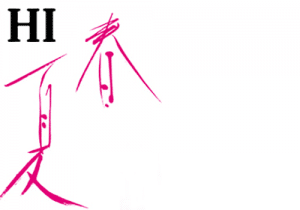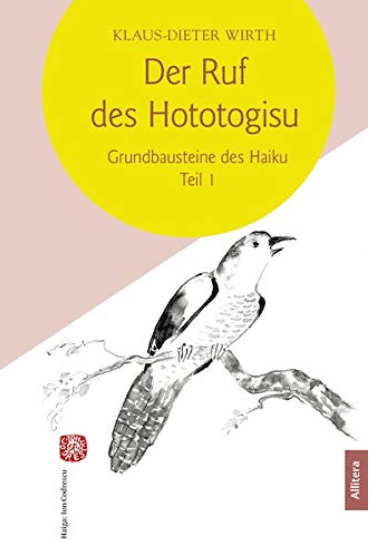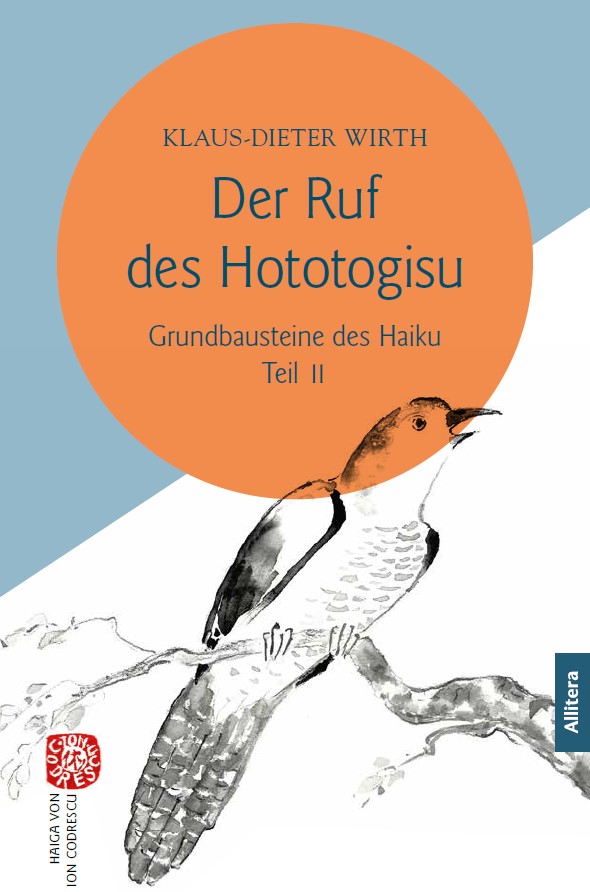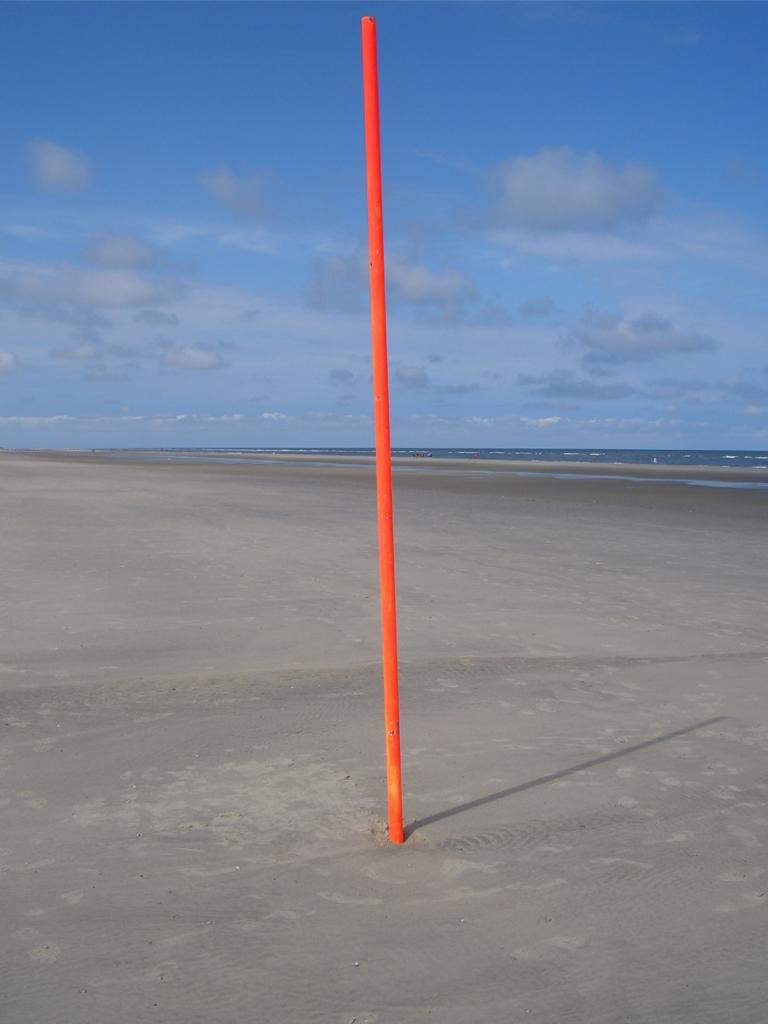Für diese Auswahl wurden insgesamt 279 Haiku von 103 Autoren und 59 Tanka von 26 Autoren eingereicht. Einsendeschluss war der 15. Januar 2021. Diese Texte wurden vor Beginn der Auswahl von mir anonymisiert.
Jedes Mitglied der DHG hat die Möglichkeit, eine Einsendung zu benennen, die bei Nichtberücksichtigung durch die Jury auf einer eigenen Mitgliederseite veröffentlicht werden soll.
Eingereicht werden können nur bisher unveröffentlichte Texte (gilt auch für Veröffentlichungen in Blogs, Foren, inklusive die Foren auf HALLO HAIKU, sozialen Medien und Werkstätten etc.).
Bitte keine Simultan-Einsendungen!
Bitte alle Haiku/Tanka gesammelt in einem Vorgang in das Online-Formular auf der DHG-Webseite HALLO HAIKU selbst eintragen:
Ansonsten per Mail mit Stichwort Haiku/Tanka-Auswahl 15. 4. 2021 im Betreff bitte an:
auswahlen@deutschehaikugesellschaft.de
Der nächste Einsendeschluss für die Haiku-/Tanka-Auswahl ist der 15. April 2021.
Jeder Teilnehmer kann bis zu sechs Texte – drei Haiku und drei Tanka – einreichen.
Mit der Einsendung gibt der Autor/die Autorin das Einverständnis für eine mögliche Veröffentlichung in der Agenda 2022 der DHG und auf http://www.zugetextet.com/sowie für eine mögliche Vorstellung auf der Website der Haiku International Association.
Haiku-Auswahl der HTA
Die Jury bestand aus Horst-Oliver Buchholz, Anke Holtz und Evelin Schmidt. Die Mitglieder der Auswahlgruppe reichten keine eigenen Texte ein.
Alle ausgewählten Texte – 53 Haiku von 46 Autoren – werden in alphabetischer Reihenfolge der Autorennamen veröffentlicht. Es werden maximal zwei Haiku pro Autor aufgenommen.
„Ein Haiku, das mich besonders anspricht“ – unter diesem Motto besteht für jedes Jurymitglied die Möglichkeit, bis zu drei Texte auszusuchen (noch anonymisiert), hier vorzustellen und zu kommentieren.
Da die Jury sich aus wechselnden Teilnehmern zusammensetzen soll, möchte ich an dieser Stelle ganz herzlich alle interessierten DHG-Mitglieder einladen, sich bei mir zu melden, um als Jurymitglied bei kommenden Auswahl-Runden mitzuwirken:
auswahlen@deutschehaikugesellschaft.de
Stichwort „HTA-Jury-Mitarbeit“
Eleonore Nickolay
Ein Haiku, das mich besonders anspricht
Flussschleife das leise Grundrauschen meines Lebens
Birgit Heid
Ein Haiku als Wortreihe, einzeilig, ein unvollständiger Satz ohne Verb, kein Prädikat – hier begegnet uns etwas Besonderes: eine lakonische Reduktion. Und eine weitere Begegnung tritt hervor, die des Menschen, „meines Lebens“, mit der Natur, der „Flussschleife“.
Die Qualität dieses Haiku nährt sich aus dem Beziehungsreichtum zwischen beidem, ein Beziehungsreichtum, der nur wenige Worte braucht, eine inhaltliche Verdichtung, wie sie selten gelingt. Hier gelingt sie in nur sechs Worten, ein minimalistischer Sprachraum, der weit ist gleichwohl. Zudem und mehr noch verströmt das Haiku eine besondere Ruhe. Ein Fluss, der gelassen dahinfließt, das „leise“ Grundrauschen des Lebens, hier ist nichts Aufgeregtes, eine atmosphärische Gelassenheit breitet sich aus, es ließe sich auch als eine Gelassenheit im Leben lesen. Das Haiku enthält kein Verb, keine Aktion mithin, was die Ruhe vertieft, ohne statisch zu werden, denn es fließt ein Fluss.
Der Fluss, der Strom der Zeit, assoziiert das Leben, wie auch das Wasser das Element des Lebens ist. Doch fließt der Strom nicht gerade dahin, wir lesen von einer Schleife. Eine Schleife muss das Wasser fließen, wenn es auf Hindernisse stößt, wenn der gerade Weg versperrt ist. Hier knüpft die Verbindung von der Natur zum Menschen im Haiku an. Denn auch der Lebensweg eines Menschen verläuft nicht gerade und linear, es tauchen Hindernisse auf und Stolpersteine, die es zu bewältigen oder zu umgehen gilt.
Begleitet wird all das von einem „Grundrauschen“. Eine sinnhafte sprachliche Verbindung vom Wasser, dem Fluss, zum Leben des Menschen, das nie in vollkommener Ruhe verharrt. Hier wird die Atmosphäre des Haiku nochmals wie lautmalerisch fortgeschrieben, Bilder entstehen, wie eine Landschaft weit, in der man sich ergehen möchte. Dies ist ein Aufbruch, unterwegs in einem meisterhaften Haiku.
Ausgesucht und kommentiert von Horst-Oliver Buchholz
Teeschale
behutsam entweicht
die LeereRamona Linke
Dieses Haiku spricht alle Sinne an. Eine Teeschale wird hier genannt, keine Tasse, kein Pott – eine Teeschale. Es wird kein schnell gekochter Tee aus einem Teebeutel beschrieben, der stundenlang in seiner Tasse unbeachtet vor sich hinzieht, es wird eine achtsame Situation beschrieben. Was sehe ich vor mir? Als Utensil für eine japanische Teezeremonie ist eine Teeschale nicht nur eine Tasse ohne Henkel, sie spielt eine Hauptrolle als feines Porzellan, kunstvoll bemalt oder von geschickten Händen getöpfert und sorgsam gebrannt. Egal wie, es ist ein Gefäß, das in den Händen gehalten wird. Die Teemeisterin befüllt in der Zeremonie die Schale mit einem zubereiteten Matchatee, behutsam. Die Leere wird durch eine Fülle ersetzt, die unsere Sinne direkt anspricht.
Die Hände fühlen, die Ohren hören das Geräusch des fließenden Tees, der Duft steigt in die Nase, die Farbe wird gesehen, der Geschmack gespürt. Aber davon ist nicht die Rede, das Entweichen der Leere wird beschrieben. Von der Leere der Teeschale zieht es mich in die Leere, die auch ich immer wieder spüre. Jeder kennt die Situation, der Kopf ist leer vor einer Prüfung – obwohl er vollgestopft wurde, wir haben eine Denkblockade. Oder Probleme und Lebenskrisen, die über uns hereinbrechen, wie gerade jetzt für viele Menschen in der Pandemie – sie erzeugen Leere.
Um die innere Leere zu füllen, empfehlen Therapeuten – aktivieren Sie Ihre Sinne! Wenn es so einfach ist, dann hilft es doch, eine Schale Tee mit allen Sinnen zu genießen.
Die bekannte Redewendung „Abwarten und Tee trinken“ war wohl eher für ungeduldige Kranke gedacht, sie bekommt mit diesem Haiku eine weitere Bedeutung – die Leere füllen.
Es ist kein Wort zu viel gesagt, der verborgene Sinn kann vom Betrachter gefüllt werden. Jede gefüllte Teeschale wird mich jetzt an dieses gelungene Haiku erinnern.
Ausgesucht und kommentiert von Evelin Schmidt
herbstende
wohin ziehn die wildgänse
michRené Possél
Ich wohne unweit von einem Rastgebiet für Kraniche und Wildgänse. Der Herbst ist immer eine besondere Zeit, wenn die Schreie der großen Vögel von fern zu hören sind und die Formationen zum Sonnenuntergang über das Haus fliegen. Allein dafür lohnt es sich auf dem Land zu leben, für diesen magischen Moment, den das Haiku festhält. Herbstende, das klassische Jahreszeitenwort – von Ende September bis Anfang November ist das Schauspiel zu sehen und zu hören, je nach Witterung. Die Herbsttage sind infolge der klimatischen Veränderungen milder, die Tiere bleiben länger auf ihren Rastplätzen und stärken sich auf den umliegenden Feldern für den langen Flug. Wohin ziehen sie, das ist die Frage. Die Ornithologen haben anhand von Sendern die Flugrouten dokumentiert. Trotzdem fragen wir uns, ob diese Gruppe heute Abend zum nächtlichen Rastplatz fliegt, oder startet sie den Flug nach Süden. Bleiben die Gänse noch ein paar Tage, oder ist morgen das Schauspiel vorüber? Welche innere Uhr zum Aufbruch mahnt, das ist ihr Geheimnis. Es gibt keine Wetteragentur, kein Navi, das die Richtung vorgibt. Und trotzdem schaffen die Tiere den faszinierenden Vogelzug.
Die letzte Zeile überrascht, das persönliche Empfinden wird mit einem Wort beschrieben.
In Gedanken können sie mich mitziehen in die südlichen Länder, die schon seit jeher Sehnsuchtsziele sind. Der Blick zum Himmel ist dann wehmütig. Die melancholische Stimmung des Abschieds, der uns zurücklässt, passt auch zur Jahreszeit und besonders zum November. So zeitlos das Thema auch ist, es lässt auch die emotionale Einordnung zur aktuellen Lebenssituation zu. In diesem Jahr hat der Lockdown im November begonnen, und die Sehnsucht, mit den Vögeln zu ziehen, hatten sicher viele Menschen. Wie wird es weitergehen mit uns? Das Runterfahren des öffentlichen Lebens, das Zurückwerfen auf uns – wohin zieht es uns? Überstehen wir die Pandemie, so wie die Vögel die lange und kraftzehrende Reise überstehen müssen? Es wird Opfer geben, die zu Schwachen und Kranken schaffen es vielleicht nicht. Die Hoffnung ist begründet, dass die Gänse im nächsten Frühling wiederkommen, wie sie immer zurückgekommen sind.
Das Haiku schafft es, ein starkes Bild zu beschreiben für einen Moment am Herbstende mit einem nachhaltigen emotionalen Bezug.
Ausgesucht und kommentiert von Evelin Schmidt
perchtnacht
die räuchermischung
googelnSonja Raab
Wir finden die Perchtnacht nicht im Kalender erwähnt, diese Nacht vor dem Dreikönigstag wird als magisch beschrieben und ist von alten Ritualen und jahrhundertealtem Glauben geprägt.
Das Haiku erinnert daran, an das Brauchtum alter Zeiten, als man in den Raunächten zwischen den Jahren das Alte mit Räuchern verabschiedet hat, um Platz für Neues zu schaffen.
Das Leben mit der Natur hat uns Menschen seit Ewigkeiten geprägt, und so ist auch die Räuchermischung einzuordnen. Verschiedene heimische Pflanzen wurden im Laufe des Jahres gesammelt und getrocknet, ganz typisch sind Salbei, Wacholder, Tannenharze, Thymian und Beifuß, zumal diesen Kräutern und Harzen auch eine desinfizierende Wirkung nachgesagt wird. Im Haiku wird die Zusammensetzung der Mischung online nachgeschlagen. Welches Kraut ist besonders wirksam, welchen wohltuenden Geruch sollte die Mischung haben, wer kann diese Mischungen liefern – diese Fragen könnten gestellt werden.
Die Lösung wird in der letzten Zeile geboten und enthält nur das Wort googeln, hier verbirgt sich die Weisheit der Jetztzeit.
Das Wissen wurde von Generation zu Generation weitergegeben und ist so erhalten geblieben. Erst seit 20 Jahren können wir googeln, um die alten Weisheiten aus einer gigantischen Suchmaschine zu fischen. Ein Kunstwort, das mittlerweile Einzug in den Duden gefunden hat. Zugegeben, ich musste auch googeln, um mehr über die Perchtnacht zu erfahren.
Alte Rituale sind nur noch in Ansätzen in unserer Lebenswelt erkennbar. Die Böller zu Silvester sollen die bösen Geister vertreiben, falls das überhaupt noch so gesehen wird. Wir zünden Räucherkerzen an für eine kuschelige Stimmung zur Weihnachtszeit. Meine Mutter wusste noch zu erzählen, dass zwischen den Jahren keine Wäsche gewaschen werden darf. In unserem Unterbewusstsein ist angelegt: Die Zeit zwischen den Jahren ist Besonders.
Gerade nach einem schwierigen Corona-Jahr sollte das Alte hinter uns liegen und sozusagen ausgeräuchert werden, um Platz für neue Energien zu haben, die Zeiten haben sich wohl in dieser Hinsicht nicht geändert. Hinab in die Mythen- und Sagenwelt reicht dieses Haiku, großartig verbindet es alte und neue Zeit mit nur neun Silben.
Die Nacht zum 6. Januar werde ich im Kalender oder zeitgemäß im Outlook vormerken, wer weiß, was dann nach gründlichem Räuchern passiert.
Ausgesucht und kommentiert von Evelin Schmidt
Die Auswahl
Gräser,
die der Wind legt –
wi/e/der//stehenEllen Althaus-Rojas
klirrende kälte
das kakophone reiben
der gelenkeSylvia Bacher
Ausgangsbeschränkung
besetzt vom kalten Schnee
die KinderwippeChrista Beau
In das Frühgeläut
von der Kirche zur Jungfrau
mischt sich ein Balzlaut.Thomas Berger
zuhause arbeiten
die Katze spielt
den ChefMartin Berner
Vater und Sohn
wir schieben unser Gespräch
durchs bunte LaubChristof Blumentrath
Corona
mein Küchenkalender voll
mit nichtsChristof Blumentrath
Dämmerung
in den Augen des Greises
letztes LichtStefanie Bucifal
Weihnachtsabend
ein verstimmtes Klavier
begleitet die StilleCaroline Christen
Horrorfilm
der lange dunkle Weg
zum LichtschalterFrank Dietrich
Milchmond
auf dem Dorfteich
ein kleines PapierbootHildegard Dohrendorf
nach dem Singen
trinkt die Amsel
ein paar Schlückchen FlussBernadette Duncan
winterspaziergang
auf zehenspitzen
in den spuren von gesternHans Egerer
Tango
das Juchzen bei der Drehung
auf Papas SchuhenPetra Fischer
Nachtschattenworte
Die vage Erinnerung
an einen TraumHans-Jürgen Göhrung
im dunkel der nacht
zwei sanfte augen
später sagt sieGregor Graf
der traum der enten
auf einem bein –
eisig singt der see …Ruth Guggenmos-Walter
Eingeparkt
er zieht die Handbremse
so fest wie nieTaiki Haijin
Schneeflocken …
sie schließt leise
die TürClaus Hansson
Licht und Schatten
auf alten Fotografien
Vaters GeistGabriele Hartmann
Flussschleife das leise Grundrauschen meines Lebens
Birgit Heid
Paartherapie
der Hexenring
noch nicht geschlossenBirgit Heid
Arztbesuch online
Der Laptop
erkennt einen VirusDeborah Karl-Brandt
das Morgenrot schauen
in unserem Garten
EisblumenUte Kassebaum
der Stadt entflohen
hier im Steingarten schweigt
sogar der WindSilvia Kempen
frostblaue nacht
von einer kiefer umschlungen
der mondMichaela Kiock
Auf der Brücke
das Mondlicht fließt
weg von mirPetra Klingl
Es beruhigt
sagt der Angler und zieht
an der HaschpfeifePetra Klingl
Gefängnishof –
die Stummel am Boden
verrauchte TräumeJoachim Koch
Kaminfeuer –
der zarte Schwung
verblasster TinteKlaus Kornexl
früh sind Meer
und Himmel eins –
NovembernachtGérard Krebs
Die alte Brücke
führt ins Dunkel – im Wasser
leuchten die Sterne.Moritz Wulf Lange
Schnee fegen …
noch immer vorm Haus
meines VatersEva Limbach
Teeschale
behutsam entweicht
die LeereRamona Linke
Gezeitenwechsel
die Priele füllen sich langsam
mit MondlichtRamona Linke
Friedhofsbesuch
die Rosen auf seinem Grab
sind nicht von ihrIngrid Meinerts
Lockdown
Herbstblätter
tanzenThilo Mutter
wieder allein
ich steche mich
am WeihnachtssternEleonore Nickolay
Bildschirmschoner
irgendwie
hab‘ ich auf so gar nichts LustJonathan Perry
Denke an die Tage,
die noch im Dunkeln liegen –
meine Suppe pfefferndJonathan Perry
herbstende
wohin ziehn die wildgänse
michRené Possél
perchtnacht
die räuchermischung
googelnSonja Raab
dreikönigstag
unter dem fenster
liegt ein christbaumSonja Raab
nicht systemrelevant
eine Krankenschwester
versucht zu tröstenWolfgang Rödig
Actionspektakel
die Fernbedienung noch
rechtzeitig erwischtSebastian Salie
Coronazeit
hinter der Glasscheibe
ein altes LächelnFrank Sauer
Schneeregen –
eine Krähe antwortet
der StilleAngelica Seithe
Wintermorgen
ein roter Apfel im Schnee
erzählt vom SommerSulamith Sommerfeld
pandemie-stille
erstmals
stillt sie ihr kindHelga Stania
mohnwaffeln
ich wähle
das alte porzellanHelga Stania
Der Schornsteinfeger
erklettert die Blüte
der AmaryllisAngela Hilde Timm
ich erinnere
meine Kindheit und finde
den Weg nach HauseJan C. Weck
Adventskalender
aus der 6 fällt ein Stiefel
aus SchokoladeBirgit Wendling
Tanka-Auswahl der HTA
Silvia Kempen und Peter Rudolf wählten 11 Tanka von 9 Autoren aus. Es werden maximal zwei Tanka pro Autor aufgenommen.
„Ein Tanka, das mich besonders anspricht“ – unter diesem Motto werden Texte vorgestellt und kommentiert.
Ein Tanka, das mich besonders anspricht
Muss die Biene dort
im Duft der Apfelblüte
ihre Augen denn
vor dieser Abendsonne
nicht zusammenkneifen?Jonathan Perry
Dieses Tanka erinnert mich an die Haiku von Kobayashi Issa. Issa hat viele Haiku über Tiere geschrieben und konnte sich gut in diese hineinversetzen und sprach wohl auch mit ihnen. Es gibt Haiku von ihm, die wie dieses Tanka als Frage formuliert wurden.
Die Facettenaugen der Bienen aus ca. 6000 Einzelaugen, den Ommatidien. Außerdem haben Bienen drei Punktaugen (Ocellen) auf der Stirn, die sehr klein sind und von den Borsten auf dem Kopf verdeckt werden. Diese Punktaugen sind extrem lichtempfindlich und dienen vermutlich als innere Uhr und Lichtkompass. Außerdem ist dadurch ein blitzschnelles Anpassen an Helligkeit und Dunkelheit möglich.
Augenlider hat die Biene natürlich nicht, die sie zusammenkneifen könnte, aber ich denke, darum geht es in diesem Tanka auch nicht, sondern eher um das Beobachten, das Nachempfinden, das sich Hineinversetzen.
Nach vollbrachtem Tagewerk auf einer Bank im Garten den Duft der Apfelblüte in der Nase, die fleißigen Bienen beobachten und Sonnenschein bis in den Abend. – Ein guter Tag.
Ausgesucht und kommentiert von Silvia Kempen
ein Dutzend Eier
in der Kühlschranktür
ungebrochen
ihr Mannschaftsgeist – ich nominiere
drei fürs OmeletteGabriele Hartmann
Bis zur dritten Zeile dachte ich: „Was soll nun das mit den Eiern im Kühlschrank? Das ist ja sowas von banal.“ Die dritte Zeile ließ mich aufhorchen; der Beginn der vierten Zeile entlockte mir einen ersten Lacher: Aha, „ungebrochen“ wirkt hier als Scharnierwort. Ein eindrückliches Beispiel dafür, wie der Scharniervers auf ein einziges, gut gewähltes Wort reduziert sein kann. Das Humorvolle daran ist mir die Verknüpfung der unterschiedlichen Ebenen von „Nahrungsmittel“ und „Sportmannschaft“ – eine originelle Personifizierung.
Die Fortsetzung in der vierten Zeile und der Schluss in der fünften ließen mich auflachen. Überraschend folgte, nach diesem heilen Moment der ungebrochenen Eier und ihrem ungebrochenen Mannschaftsgeist, die Hinwendung zum Alltäglichen, ja Banalen: Drei Eier werden ausgewählt für ein Omelette. Dabei entsteht der Gegensatz „ungebrochen/heil – ausgewählt/gebrochen“.
In der vierten Zeile fördert das Verb „nominieren“, das hier in erster Linie dem Sport entnommen auftaucht, das aber wenigstens mit einem kleinen Finger auch in die Politik weist, meine Erwartungshaltung. Es ist für mich die zweite herrliche Wortwahl in diesem Tanka. Damit führt der Autor / die Autorin auf den höchsten Punkt der Gleichbehandlung „mehrere Eier – Mannschaft“. Unter diesem Gesichtspunkt ist die Wahl der überlangen vierten Zeile richtig, weil sie für das Weiterlesen auf der fünften Zeile die Pointe aufspart.
Besonders angesprochen hat mich von diesem Fünfzeiler sein Humor, in schweren Zeiten ein mir willkommener Gast. Angesprochen fühle ich mich aber auch durch die Form, sagt mir doch dieses Tanka, dass die Wahl so treffender Worte eine Missachtung traditioneller Formen rechtfertigt.
Ausgesucht und kommentiert von Peter Rudolf
ihr Kopf
ein Karussell
Fragen kreisen
bleiben ohne Antwort
sie redet mit dem HundHelga Schulz Blank
Nach dem ersten Lesen dieses Tanka las ich es noch einmal – fragend, lauschend. Seine Montage von kürzester Zeile zur längsten entspricht in hohem Maß einer Verzweiflung, die mir erst bei wiederholtem Lesen bewusst wird. Gerade das Dableiben und darüber hinaus ein mehr und mehr Werden, auch schwerer Werden, ist für mich das Merkmal einer Verzweiflung. Ebenso zutreffend scheint mir, dass der wirkliche Inhalt, wenn man will, sachlich gesagt: das Problem selber, nicht genannt wird in diesen fünf Zeilen. Insofern steht das Längerwerden der Zeilen für das Moment einer anhaltenden Verzweiflung.
Auch hier wieder: Ich bin der Ansicht, ich habe ein Tanka vor mir. Ich bin weiter der Ansicht, dass, selbstverständlich erst auf der Grundlage der passenden Worte, durch seine Form dem nicht expressis verbis Gesagten ein Ausdruck gegeben wird, den ihm die gewählten Worte allein nicht geben. Das Karussell als Sinnbild für ein nicht enden wollendes Kreisen – perfekt gewählt.
Dass der Autor/die Autorin mich als Leser nicht selber nur betroffen zurücklässt, bewirkt er/sie mit der fünften Zeile. Ich bezeichne sie nicht als Auflösung; eher sehe ich sie als Trost. Immerhin gibt es diesen einen guten Freund, der einen auch versteht – wenn einem als Gegenüber ein verstehender Mensch fehlt.
Ausgesucht und kommentiert von Peter Rudolf
Die Auswahl
Wer fürchtet sich nicht,
wenn Unheil durch die Luft schwebt,
lautlos, unsichtbar,
wenn weltweit Menschen leiden
und die Toten beklagen?Renate Buddensiek
den Liebesbrief
in tausend Schnipsel
zerrissen
Schnee rieselt
durch meine FingerFrank Dietrich
wolken ziehen
der mond mal hier
mal dort
ach wie sie
lachen kannGregor Graf
die 1000 namen
für schnee
wehen
über die welt –
der klang der stille …Ruth Guggenmos-Walter
die blicke nachtschwarz
im heulen des sturms –
zwei schneemänner
ein großer und ein kleiner
hand in hand …Ruth Guggenmos-Walter
ein Dutzend Eier
in der Kühlschranktür
ungebrochen
ihr Mannschaftsgeist – ich nominiere
drei fürs OmeletteGabriele Hartmann
Vaterstadtbahnhof
wir lächeln gequält
er umarmt mich
dann sehe ich zu wie er
kleiner und kleiner wirdSigrid Mertens
Muss die Biene dort
im Duft der Apfelblüte
ihre Augen denn
vor dieser Abendsonne
nicht zusammenkneifen?Jonathan Perry
grosse Schneeflocken –
die neue Jahreszeit hat
endlich begonnen
am Fenster pfeife ich nun
die schwungvolle MelodieDragan J. Ristić
unseren Schatz
den wir damals fanden –
den grünen Stein
leg ich dir heute
in deine kalte HandHelga Schulz Blank
ihr Kopf
ein Karussell
Fragen kreisen
bleiben ohne Antwort
sie redet mit dem HundHelga Schulz Blank
Sonderbeitrag von René Possél
René Possél hat aus allen anonymisierten Einsendungen ein Haiku ausgesucht, das ihn besonders anspricht.
Friedhofsbesuch
die Rosen auf seinem Grab
sind nicht von ihrIngrid Meinerts
Ein scheinbar leicht verständliches Haiku. Doch deutet es mehr an, als dass es etwas Eindeutiges aussagt. Da ist ein Mann gestorben. (S)eine Frau besucht das Grab auf dem Friedhof. Das Haiku lässt nirgendwo erkennen, ob sie seine Ehefrau oder Geliebte war. Jedenfalls entdeckt sie auf seinem Grab Rosen, „die nicht von ihr sind“. Was hat diese Entdeckung zu bedeuten?
Alles andere ist nun der (mehr oder weniger großen) Fantasie bzw. den Fragen des geneigten Lesers/Hörers überlassen: Hat die Frau posthum entdeckt, dass ihr Mann eine Geliebte hatte?
War er ihr Ehemann oder Geliebter? Hat sie ihn geliebt und bei ihren (regelmäßigen?) Besuchen Rosen auf sein Grab gelegt, sodass die jetzt entdeckten Rosen eine Liebes-Konkurrentin bedeuten? Tauchen die Rosen kurz nach der Beerdigung auf – oder erst nach langer Zeit? Haben sie womöglich nicht das zu bedeuten, was man aus dem Symbol normalerweise schließen kann?
Der Tote mag ja „in Frieden ruhen“. Sein Grab mit den darauf entdeckten Rosen nimmt offenbar der Frau Ruhe und Frieden …







